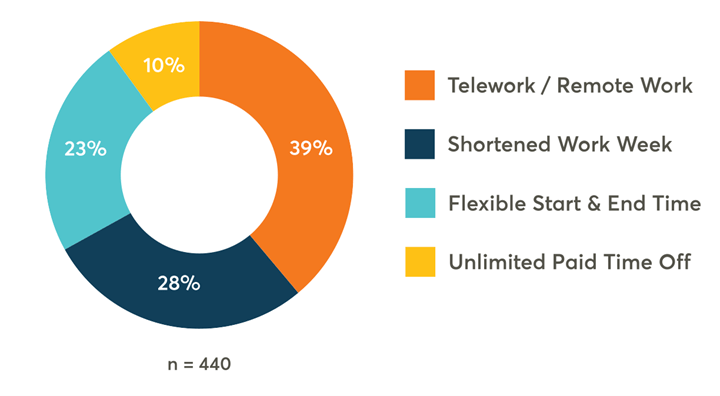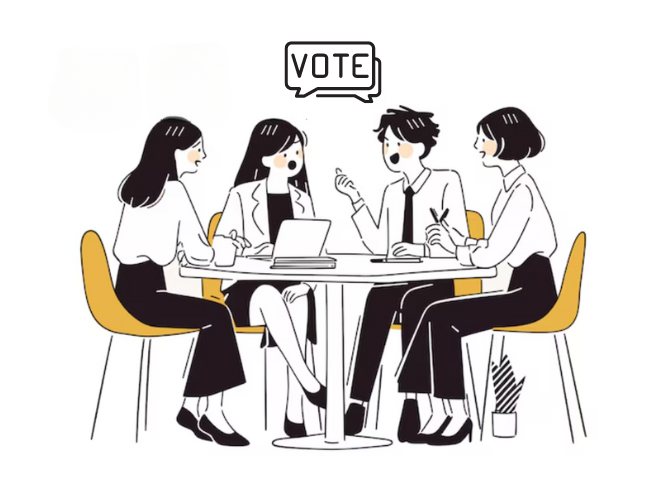A French man, referred to as Mr. T., recently won a lawsuit after he was fired from a consultancy firm for refusing to adhere to the company’s “fun” values. According to court documents, Mr. T turned down obligatory social events such as post-work drinks and team-bonding activities. It was ruled that Mr. T was exercising his “freedom of expression” and “fundamental freedom” by choosing not to participate in the company’s fun activities. Therefore, the court concluded that he was wrongfully dismissed.
While creating an engaging work environment is important, it is necessary to remember each employee’s differing wants and needs. This means allowing them the freedom to choose when they want to participate in office activities. When an employee’s individuality is respected, they can make decisions that support their idea of a fulfilling work experience.
With the holidays just around the corner, employees might feel additional pressure to participate in parties and other company-sponsored social gatherings. The holidays are a time for fun, but getting “in the spirit” looks different for every employee. This season, employers should focus on creating an inclusive and positive environment while respecting work-life boundaries.
Branding The Workplace As A “Family” Is Toxic
Employees spend approximately 1,795 hours a year with their colleagues, and with all that time considered, organizations might think it makes sense to brand their workplace as a family. In practice, this approach can create an unhealthy dynamic that binds employees to their colleagues, employers, and work events.
When a workplace is considered a family, personal and professional lines begin to blur. Private aspects of employees’ lives become fair game for conversation, pressuring them to disclose personal details to align with the company’s culture. A sense of loyalty to the organization becomes exaggerated by mirroring the characteristics of family ties. This can result in employees accepting more responsibilities than they can handle, leading to burnout.
Additionally, for caregivers, having too many commitments is unrealistic. Women in particular might find themselves struggling to find a balance between work and home life, as they often shoulder the bulk of caretaking responsibilities.
Branding the workplace as a family or making social activities mandatory is not the solution to building an environment where employees feel respected, engaged, and motivated. Instead, employers can implement the following practices:
1. Foster A Workplace Culture That Prioritizes Mental Health
Mandatory office events are not solutions to dysfunctional work environments. Mental well-being plays an integral role in employee engagement and overall job satisfaction. Organizations that prioritize all dimensions of well-being by implementing a holistic wellness program reap the benefits of employees with heightened performance and work fulfillment.
Instead of pressuring employees to share details of their personal lives within a family-branded culture, employers can foster feelings of safety and connection by implementing optional dialogue space meetings. These meetings can allow participants to discuss sensitive topics regarding mental health, identity, and other “taboo” topics in a non-judgmental space.
2. Create Opportunities, Not Obligations
The holiday season is not enjoyable for everyone and often comes with additional pressures outside of the workplace. Mandatory holiday activities can increase burdens on employees juggling multiple responsibilities or struggling to prioritize their mental health during a difficult time. Amazon, for example, asked managers to limit parties and keep events virtual after recently announcing their plan to lay off 11,000 workers. Spreading the spirit can be done in non-extravagant, yet meaningful, ways, like offering free healthy food in the office or allowing flexible work hours.
3. Encourage Fun Outside Of The Workplace
While the idea of unlimited PTO sounds appealing, it is one of the least preferred flexible work arrangements by employees.
Which flexible work arrangement do you value the most?

Employees are reluctant to utilize vacation time if they worry their employers do not want them to. This is often due to the lack of organizational support. Organizations can emphasize their genuine hope that employees will take PTO by encouraging them to share photos of their vacations and expressing the benefits of prioritizing fun activities unrelated to work. This is especially important during the holidays when employees should feel supported in taking time off to spend with their loved ones, not their colleagues.












